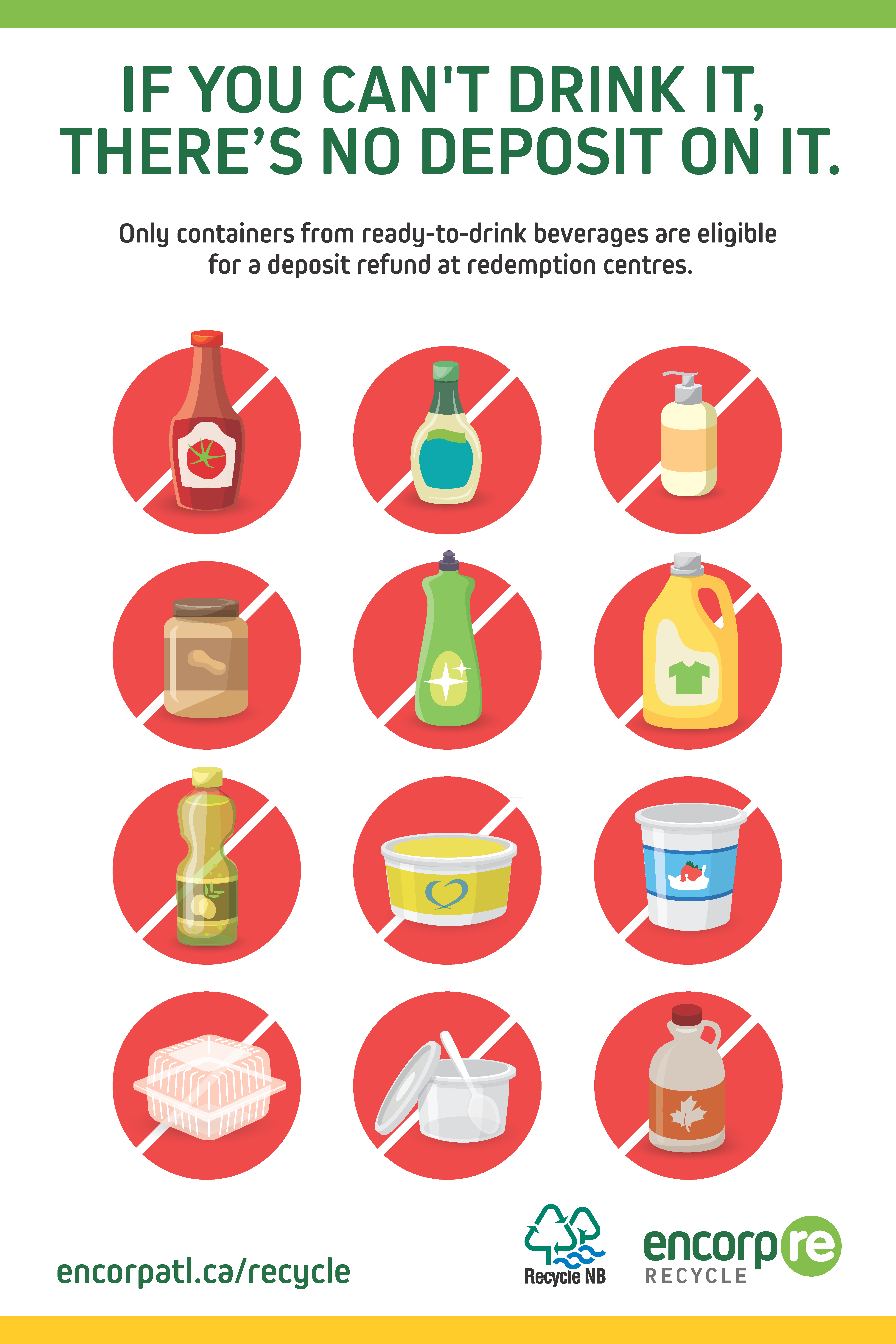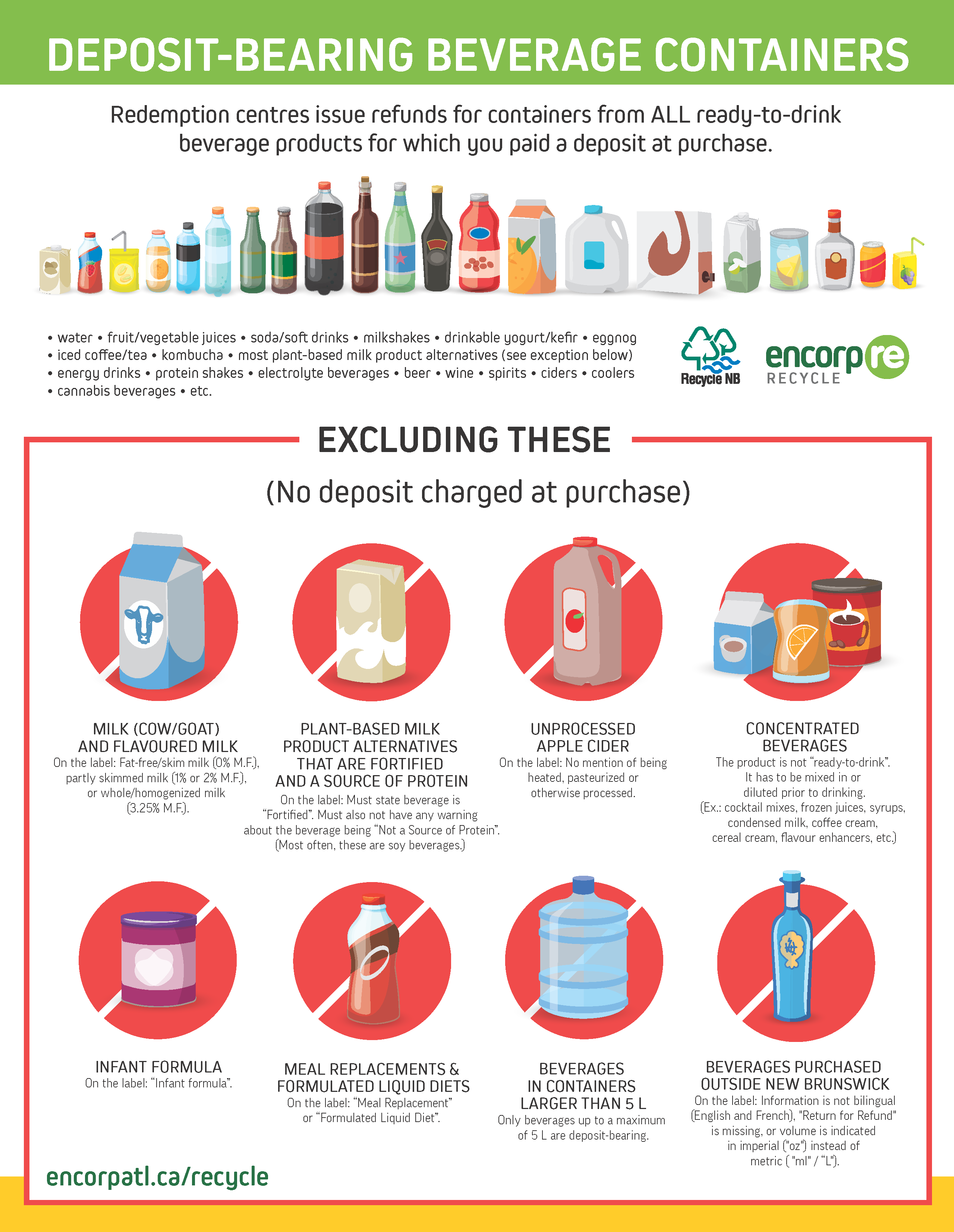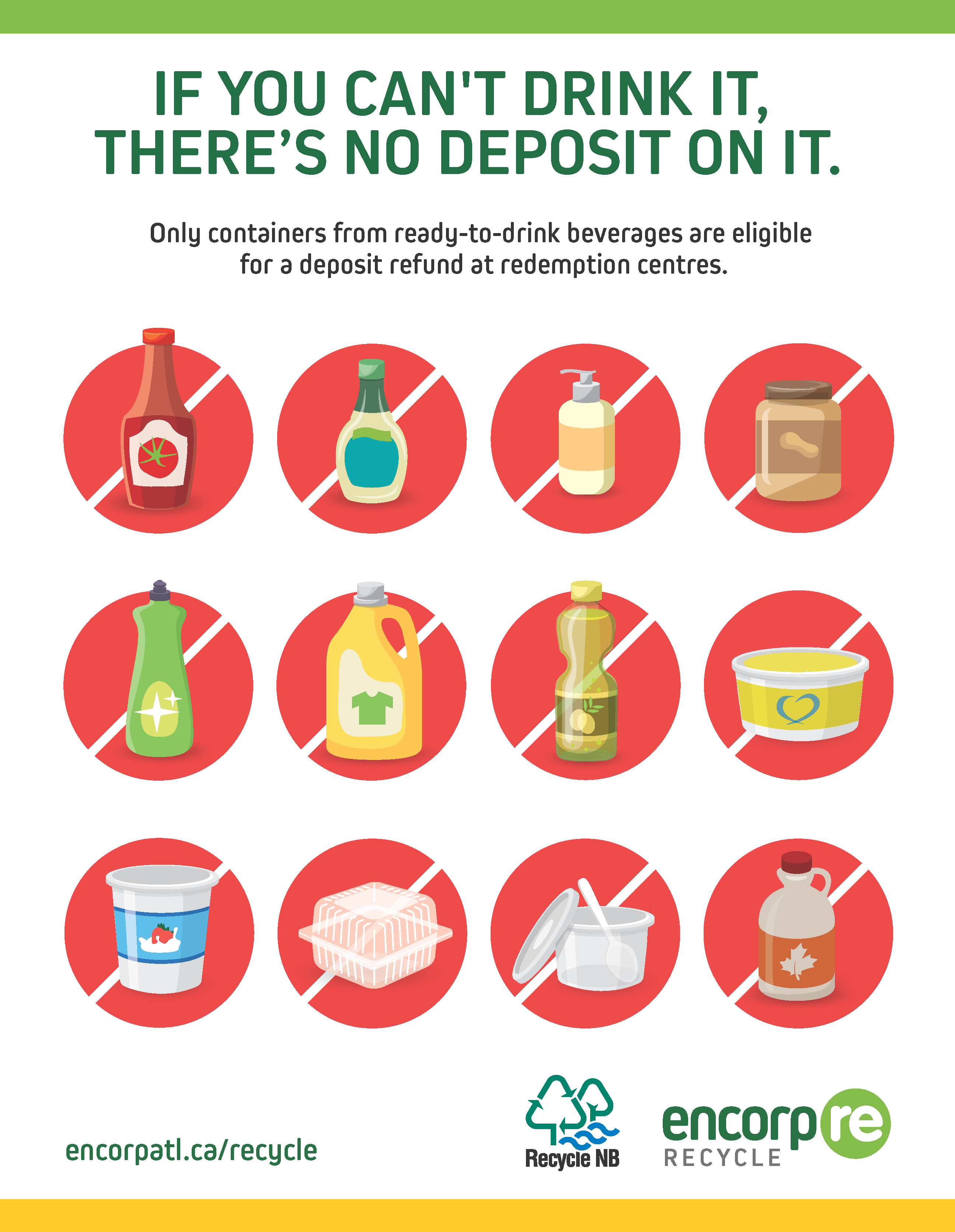Redemption centres issue refunds for containers from ALL ready-to-drink beverage products for which you paid a deposit at purchase in New Brunswick

• water • fruit/vegetable juices • soda/soft drinks • milkshakes • drinkable yogurt/kefir • eggnog • iced coffee/tea • kombucha • most plant-based milk product alternatives (see exception below) • energy drinks • protein shakes • electrolyte beverages • beer • wine • spirits • ciders • coolers • cannabis beverages • etc.
EXCLUDING THESE
(Not part of the program – no deposit charged at purchase)
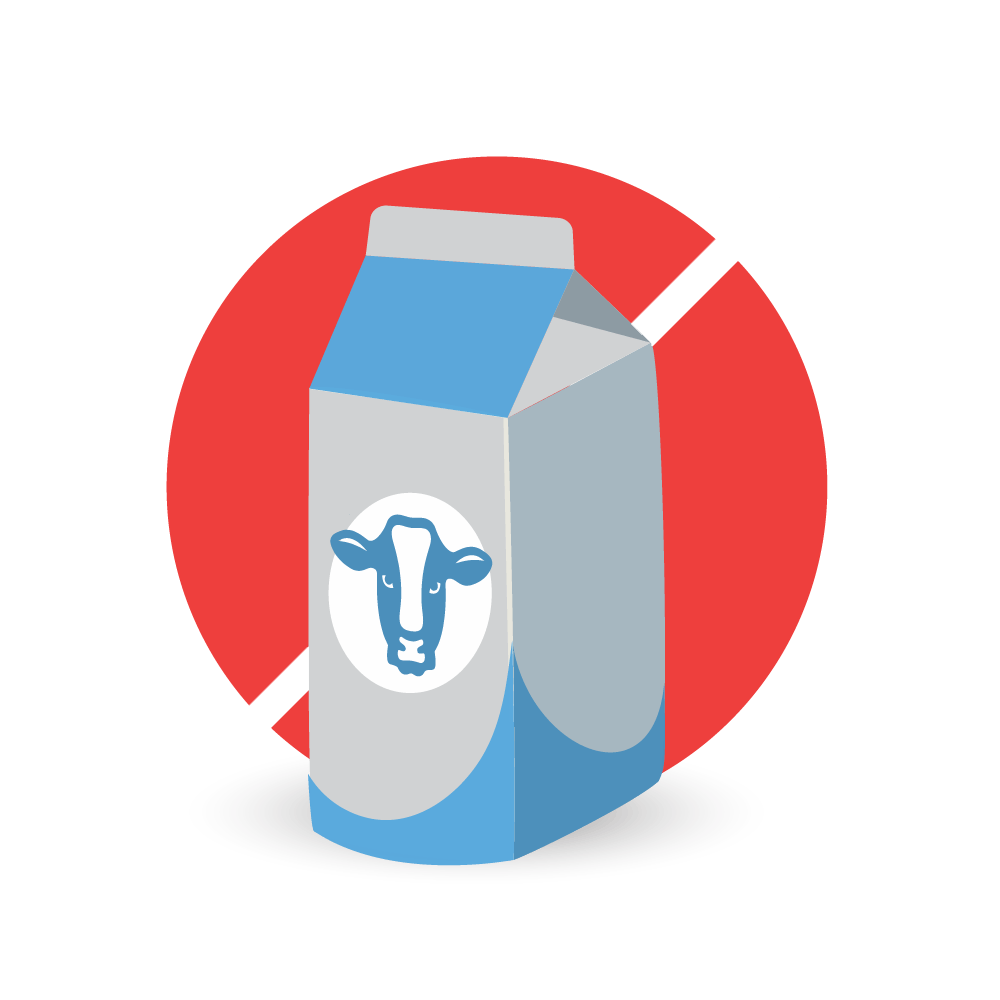
MILK (COW/GOAT) AND FLAVOURED MILK
On the label: Fat-free/skim milk (0% M.F.), partly skimmed milk (1% or 2% M.F.), or whole/homogenized milk (3.25% M.F.).
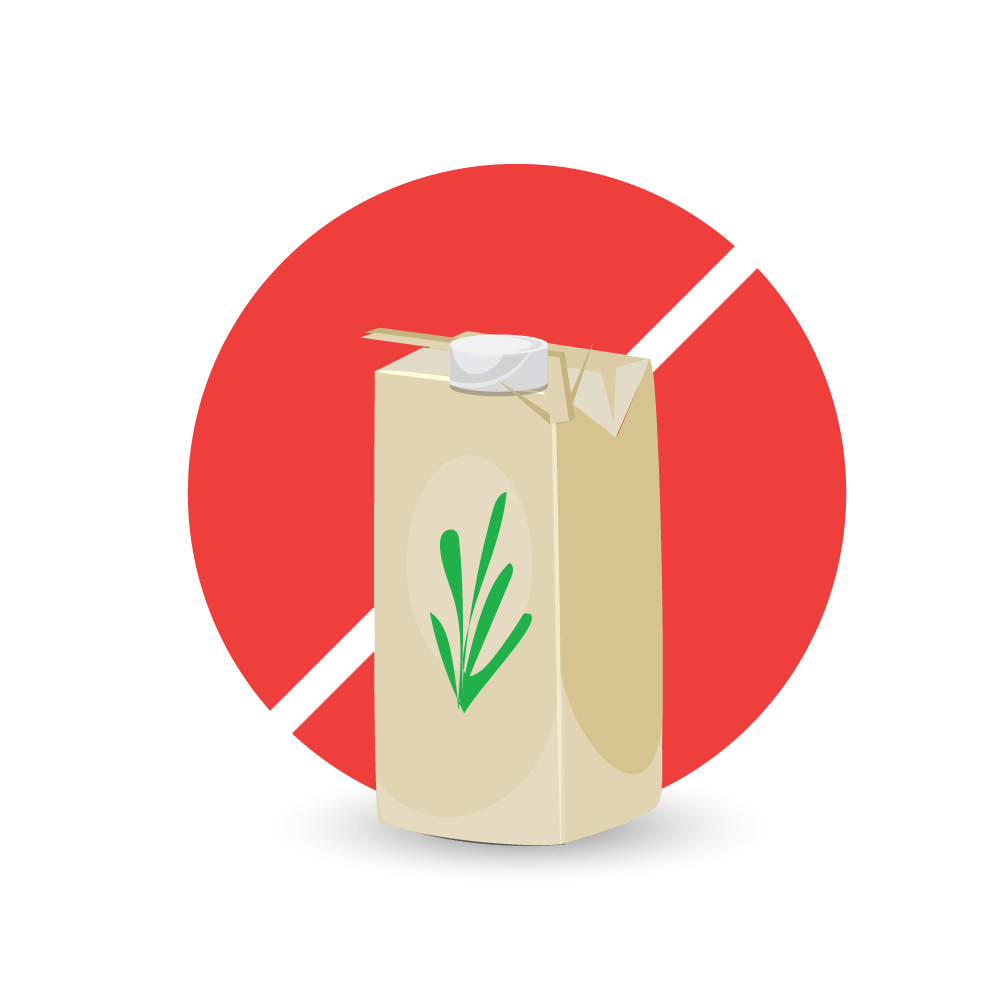
PLANT-BASED MILK PRODUCT ALTERNATIVES THAT ARE FORTIFIED AND A SOURCE OF PROTEIN
On the label: Must state beverage is “Fortified”. Must also not have any warning about the beverage being “Not a Source of Protein”. (Most often, these are soy beverages.)
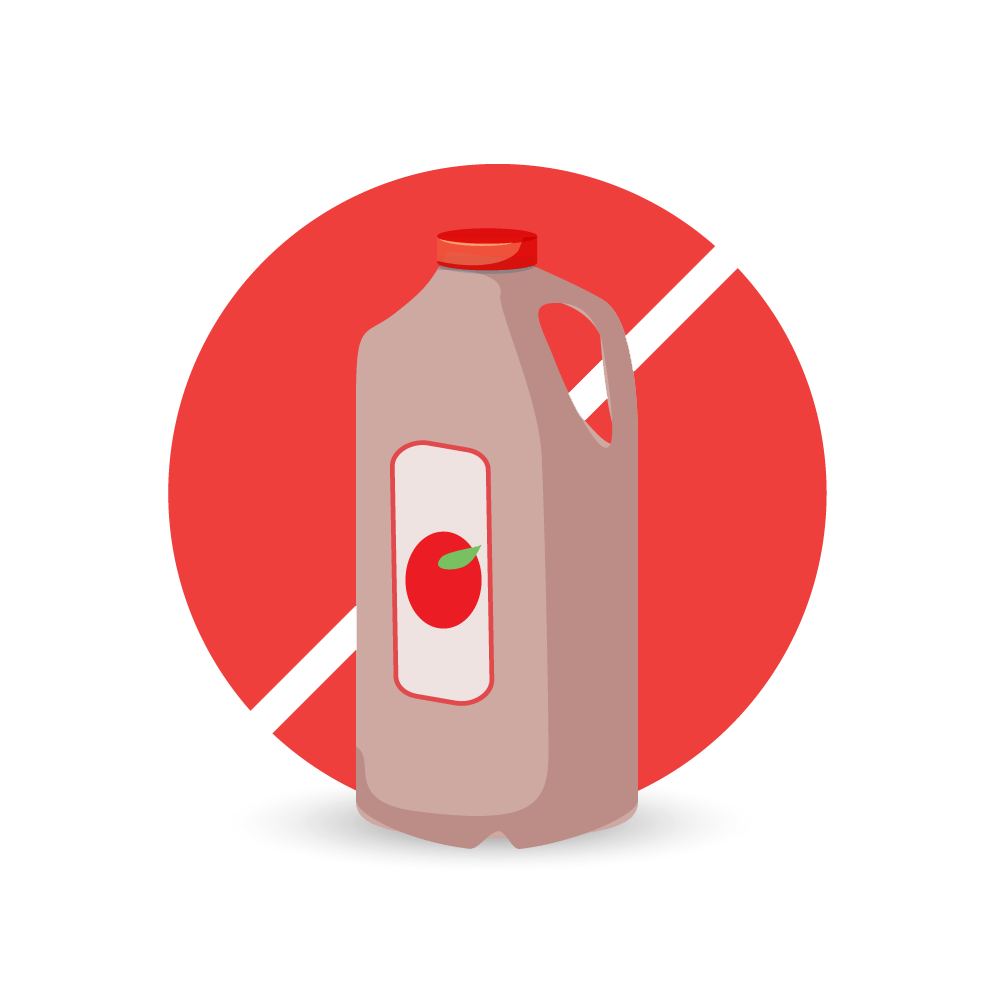
UNPROCESSED APPLE CIDER
On the label: No mention of being heated, pasteurized or otherwise processed.
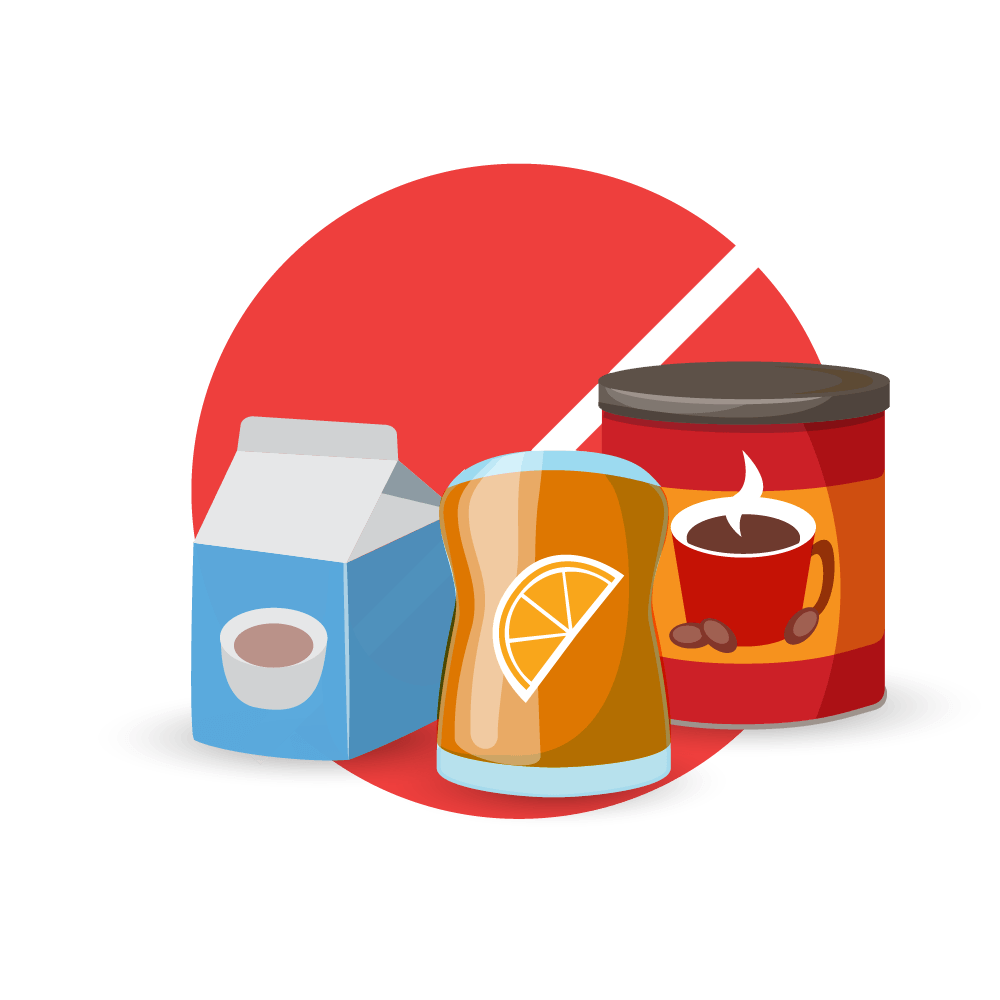
CONCENTRATED BEVERAGES
The product is not “ready-to-drink”. It has to be mixed in or diluted prior to drinking. (Ex.: cocktail mixes, frozen juices, syrups, condensed milk, coffee cream, cereal cream, flavour enhancers, etc.)
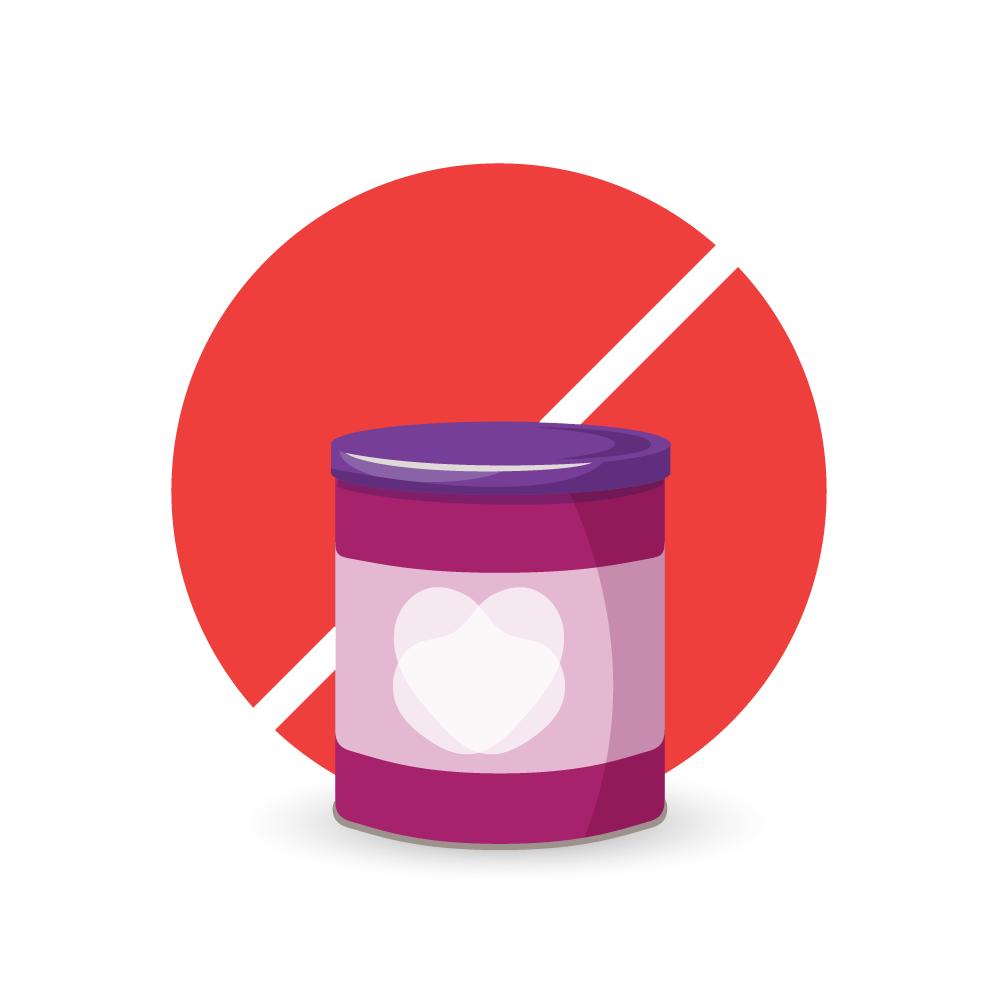
INFANT FORMULA
On the label: “Infant Formula”.
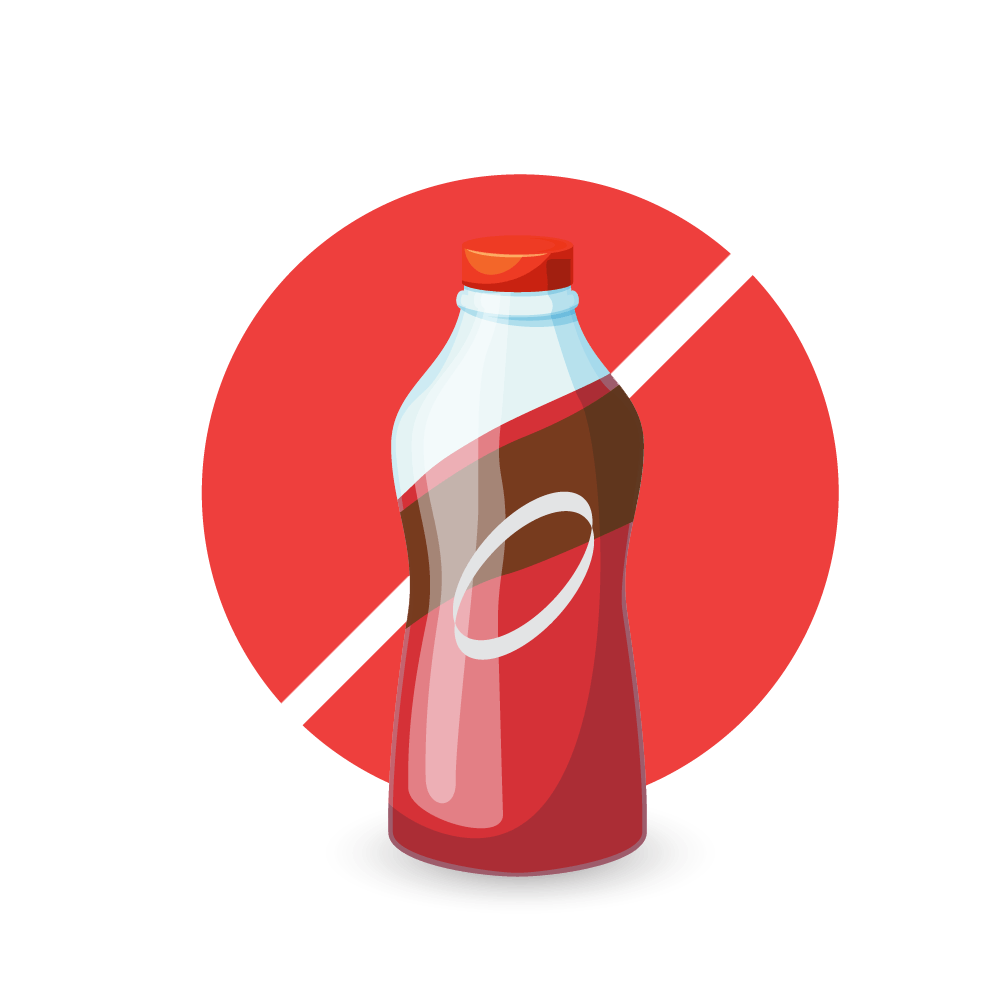
MEAL REPLACEMENTS & FORMULATED LIQUID DIETS
On the label: “Meal Replacement” or “Formulated Liquid Diet”.
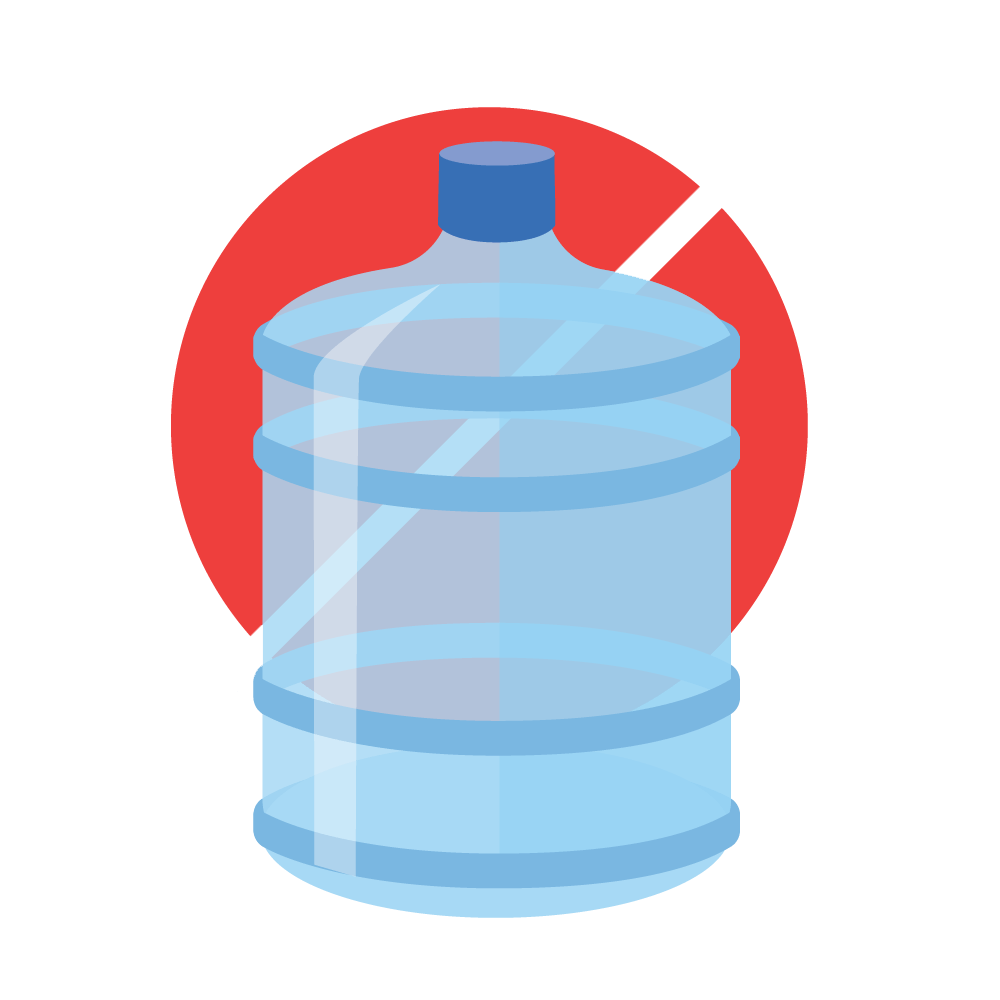
BEVERAGES IN CONTAINERS LARGER THAN 5 L
Only beverages up to a maximum of 5 L are deposit-bearing.
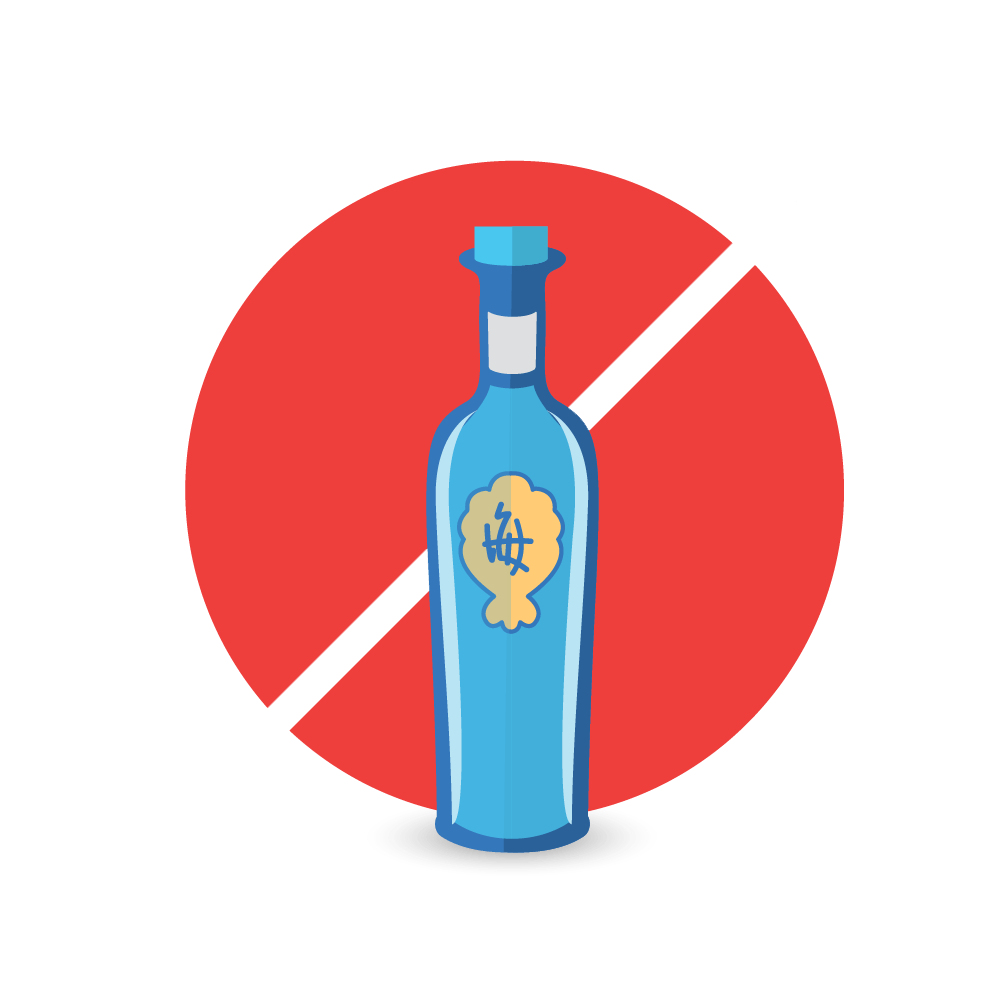
BEVERAGES PURCHASED OUTSIDE NEW BRUNSWICK
On the label: Information is not bilingual (English and French), “Return for Refund” is missing, or volume is indicated in imperial (“oz”) instead of metric (“ml” / “L”).
How Can I Be Sure a Beverage Container Is Deposit-Bearing?
When you buy a drink, you can check your receipt for the deposit fee, which should be listed as either 10 or 20 cents. If you paid a deposit on the beverage product, you can return its empty container to a redemption centre. Please also note that you must have purchased the beverage product in New Brunswick.
What Do I Do With Other Containers?
Only deposit-bearing beverage containers are eligible for a deposit refund at New Brunswick redemption centres. Beverage containers that are not deposit-bearing, as well as all other types of empty recyclable containers (food, household cleaning products, etc.), are the responsibility of local waste management programs. Circular Materials works with various redemption centres and Regional Service Commissions. Check the Circular Materials website or refer to your local Regional Service Commission’s waste management program’s website for more information on where and how to recycle these other types of containers and packaging.
